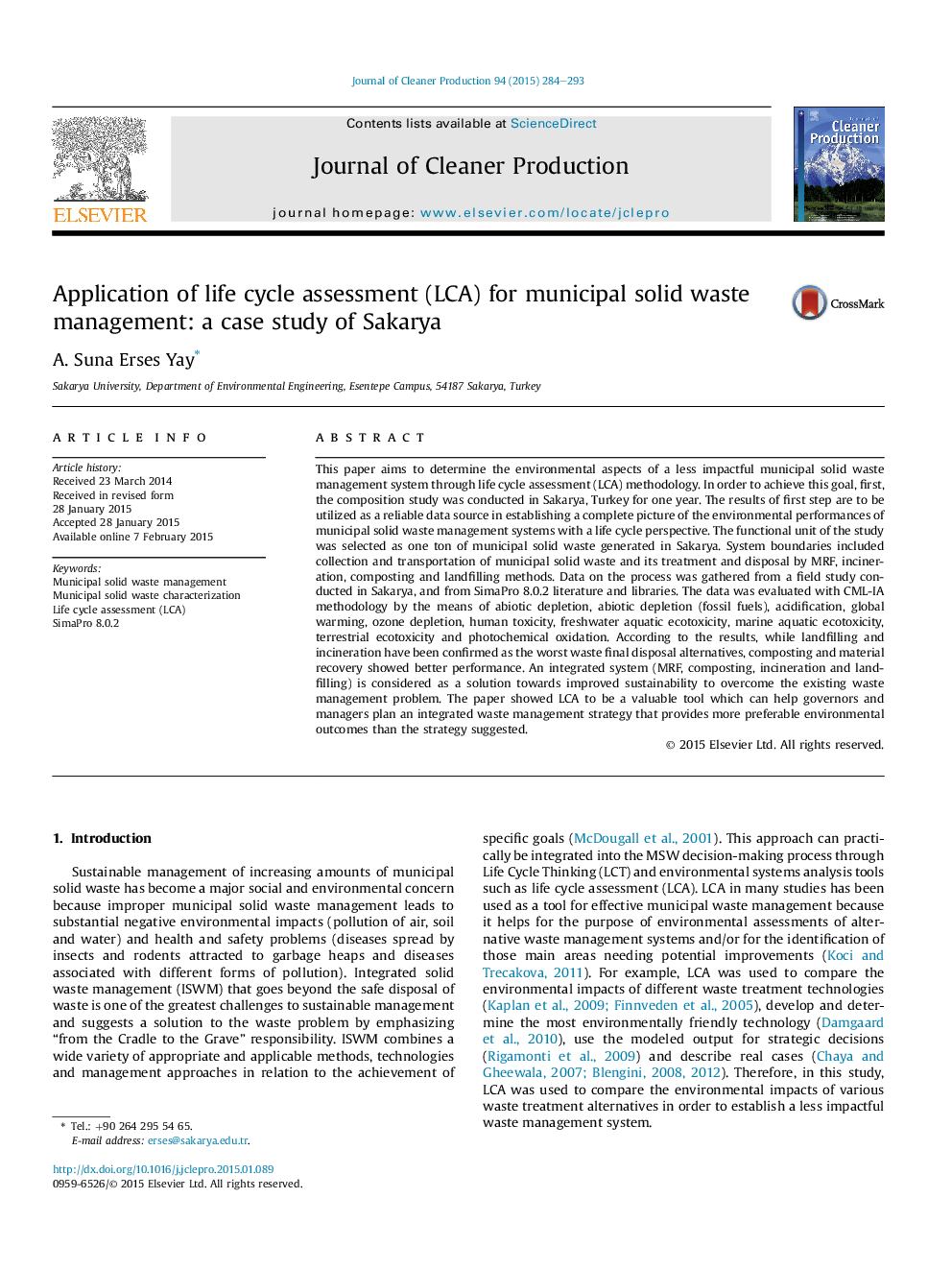| Article ID | Journal | Published Year | Pages | File Type |
|---|---|---|---|---|
| 8104673 | Journal of Cleaner Production | 2015 | 10 Pages |
Abstract
This paper aims to determine the environmental aspects of a less impactful municipal solid waste management system through life cycle assessment (LCA) methodology. In order to achieve this goal, first, the composition study was conducted in Sakarya, Turkey for one year. The results of first step are to be utilized as a reliable data source in establishing a complete picture of the environmental performances of municipal solid waste management systems with a life cycle perspective. The functional unit of the study was selected as one ton of municipal solid waste generated in Sakarya. System boundaries included collection and transportation of municipal solid waste and its treatment and disposal by MRF, incineration, composting and landfilling methods. Data on the process was gathered from a field study conducted in Sakarya, and from SimaPro 8.0.2 literature and libraries. The data was evaluated with CML-IA methodology by the means of abiotic depletion, abiotic depletion (fossil fuels), acidification, global warming, ozone depletion, human toxicity, freshwater aquatic ecotoxicity, marine aquatic ecotoxicity, terrestrial ecotoxicity and photochemical oxidation. According to the results, while landfilling and incineration have been confirmed as the worst waste final disposal alternatives, composting and material recovery showed better performance. An integrated system (MRF, composting, incineration and landfilling) is considered as a solution towards improved sustainability to overcome the existing waste management problem. The paper showed LCA to be a valuable tool which can help governors and managers plan an integrated waste management strategy that provides more preferable environmental outcomes than the strategy suggested.
Related Topics
Physical Sciences and Engineering
Energy
Renewable Energy, Sustainability and the Environment
Authors
A. Suna Erses Yay,
